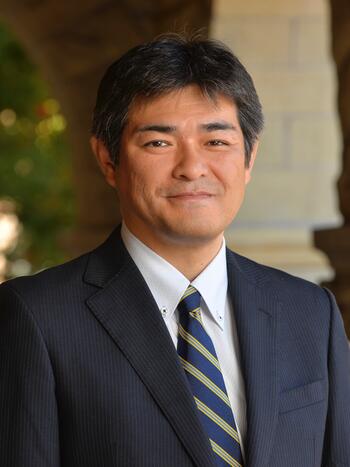Global Affiliates Research Presentations (session 3 of 5)
Global Affiliates Research Presentations (session 3 of 5)
Thursday, May 16, 20192:00 PM - 4:00 PM (Pacific)
Encina Hall, Third Floor, Central, C330
616 Jane Stanford Way, Stanford, CA 94305
The format of this presentation is each of the three speakers will have approximately 15 minutes to present their research. This will be followed by a short period of 5-10 minutes for any questions or comments from the audience.
In this session of the Global Affiliates Research Presentations, the following will be presented:
Hiroto Akai, Ministry of Finance, Japan, "FinTech and Japanese Banks: Implications for Fiscal Sustainability"
 Although Japan has the world's largest government debt, the interest rate of the Japanese Government Bond (JGB) still remains lower than most major countries. In the JGB market, Japanese banks play a key role as massive investors. However, in recent years, many business environments surrounding Japanese banks have dramatically changed. One of the biggest changes is FinTech. Given the growth of FinTech, some researchers argue that it could disrupt traditional banking. In his research, Akai provides an overview of the FinTech phenomenon, especially in the U.S., and tries to analyze the relationship between FinTech and incumbent banks. Given the characteristics in Japan's financial market, Akai tries to clarify the impact of Fintech to the investment behavior of Japanese banks.
Although Japan has the world's largest government debt, the interest rate of the Japanese Government Bond (JGB) still remains lower than most major countries. In the JGB market, Japanese banks play a key role as massive investors. However, in recent years, many business environments surrounding Japanese banks have dramatically changed. One of the biggest changes is FinTech. Given the growth of FinTech, some researchers argue that it could disrupt traditional banking. In his research, Akai provides an overview of the FinTech phenomenon, especially in the U.S., and tries to analyze the relationship between FinTech and incumbent banks. Given the characteristics in Japan's financial market, Akai tries to clarify the impact of Fintech to the investment behavior of Japanese banks.
Yasuhito Ando, Kozo Keikaku Engineering, "Use of AI in Architectural Design: Defining Comfort in Residential Design"

In the design of buildings, there are already examples of computer-based optimization of structure, design, cost and environment. However, there is no example of realizing comfortable planning. This is because the comfort is vague and difficult to design. In his research, Ando examines how to find comfort definitions from housing design data.
Takanori Tomozawa, Ministry of Economy, Trade & Industry, Japan, "Innovation for Energy Policy & Companies in Japan — Lessons Learned from Silicon Valley"

